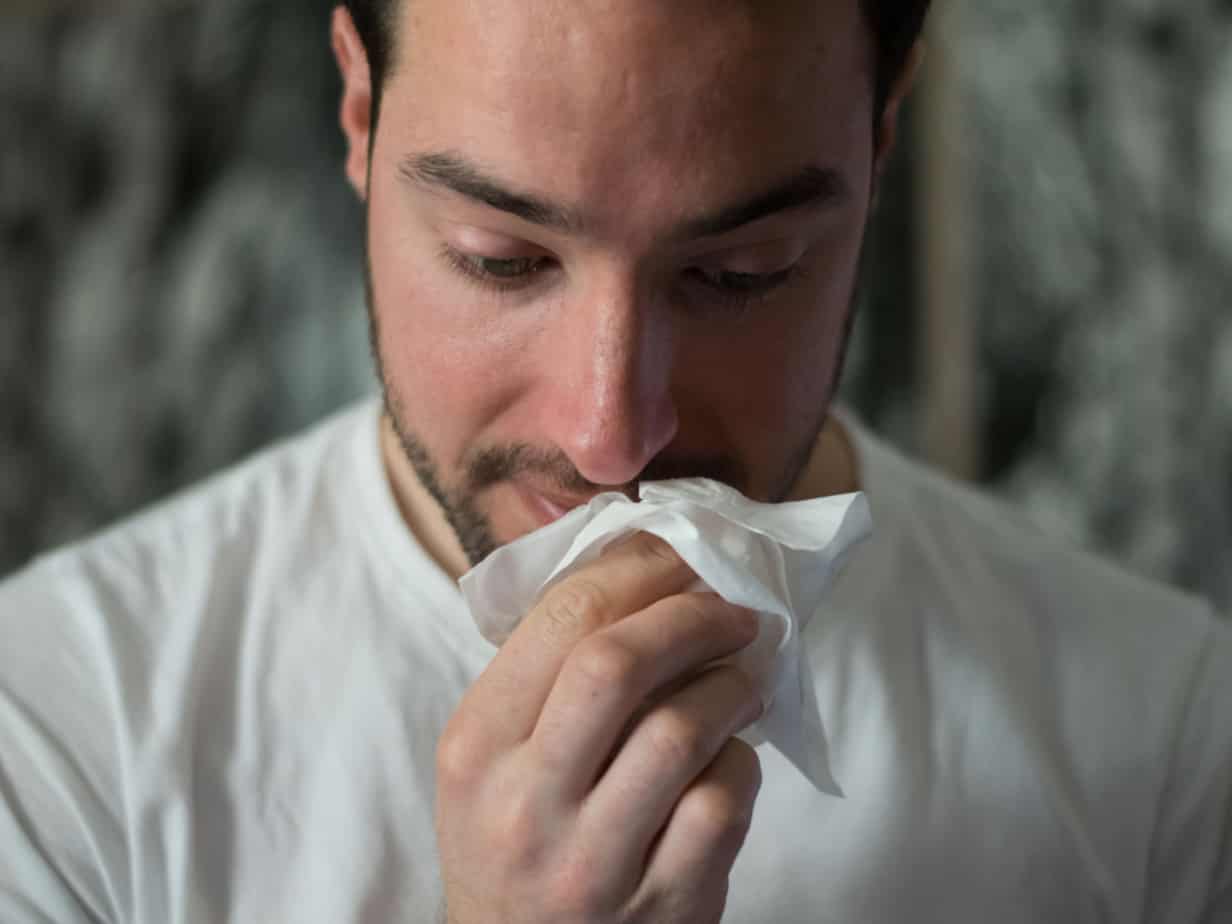
"Got itchy eyes and an alternately stuffy and runny nose? Feeling like allergy season seems to start earlier and end later? It's true that due to climate change, there's more pollen in the air, and for a longer time, than there used to be, according to the American Academy of Allergy, Asthma, and Immunology and the Environmental Protection Agency. (In the past, pollen season ran from April to mid-October. Now, depending on where you live, it can linger from February to November.) And pollen counts are expected to double by 2040, notes AAAAI."
"Consumer Reports says that's a problem for the 6.5% of American adults and 7.5% of children with hay fever (allergies to pollen from trees, weeds, and grasses). Research has found that 80% of those with seasonal allergies report moderate-to-severe symptoms that significantly impair their quality of life."
With symptoms seeming to occur sooner every year, Frequent Drugstore Shoppers are turning to the internet for answers. Within the last 30 days, 28.6% of these consumers used a search engine to research products they were considering. In the last six months, 28.3% have purchased a product advertised on an infomercial, 21.1% have viewed a TV commercial on YouTube and 19.5% have even emailed a store or retailer.
"But thanks to newer treatments and updated treatment guidelines released by the AAAAI and the American College of Allergy, Asthma, and Immunology in 2017, doctors now have more effective ways to help subdue symptoms. Today's medications 'are worlds apart from what we had 40 years ago,' says Richard Lockey, M.D., director of the division of allergy and immunology at the University of South Florida College of Medicine. 'There’s no reason anyone now needs to suffer unnecessarily, we can usually find some sort of treatment that works for everyone.'”
"One of the most effective strategies is also one of the most straightforward: reducing your exposure to allergens:
- Take a bedtime shower. This helps wash off pollen that’s collected on your skin and hair during the day so that you're not literally sleeping with allergens.
- Use an over-the-counter (OTC) saline nasal spray. This helps clear a clogged-up nose and wash out pollen and other allergens that may have accumulated there. You can use these products as often as you want, says Sandra Hong, M.D., an allergist at the Cleveland Clinic, but it’s a particularly good idea after you’ve been outdoors and before bed. (Skip nasal decongestant sprays, or use them only for a couple of days, because they can cause rebound congestion.)
- Banish Buddy from the bedroom. Even if you’re not allergic to your cat or dog, keep pets off your bed, and if possible, out of the room entirely, if they spend any time outdoors. Their fur can harbor pollen.
- Run the air conditioner. You may be tempted to throw your windows open, but those lovely breezes can carry pollen into your home. 'You want to keep doors and windows closed, so no pollen can get in,' Lockey says. An air purifier might help, too."
"Take the right meds at the right time:
- Oral antihistamines. If you have mild seasonal allergy symptoms when you’re outdoors, but feel better once you’re inside, it’s reasonable to try a once-a-day OTC antihistamine. These drugs, available in chewable, liquid, and tablet form, can be taken daily until the end of allergy season.
- Steroid nasal sprays. If your symptoms persist even when you’re inside, include nasal stuffiness, and make you so uncomfortable that it’s hard to sleep and go about your day-to-day activities, the new guidelines now recommend opting for a daily prescription or OTC nasal steroid spray.
- Antihistamine nasal sprays. If you’ve been faithfully using a nasal steroid for a couple of weeks and you’re still uncomfortable, the guidelines recommend adding in a daily prescription nasal antihistamine spray
Digital advertisements are a great way for drugstores to promote their allergy relief products to Frequent Drugstore Shoppers. According to AudienceSCAN, last year, 73.9% of these consumers took action after either receiving an ad via text message or seeing an ad on their mobile smartphone apps. This isn't very surprising since they're 81% more likely than other adults to find advertising on their mobile apps useful. In that same amount of time, they also took action after hearing radio ads both over-the-air and online (73.2%), receiving email ads (71.8%) or finding ads on daily deals websites such as Groupon (71.4%). Traditional media is also effective with 79.4% reacting to TV commercials and 73.7% taking action after receiving direct mail ads last year.
AudienceSCAN data is available for your applications and dashboards through the SalesFuel API. Media companies and agencies can access AudienceSCAN data through the AudienceSCAN Reports in AdMall.
